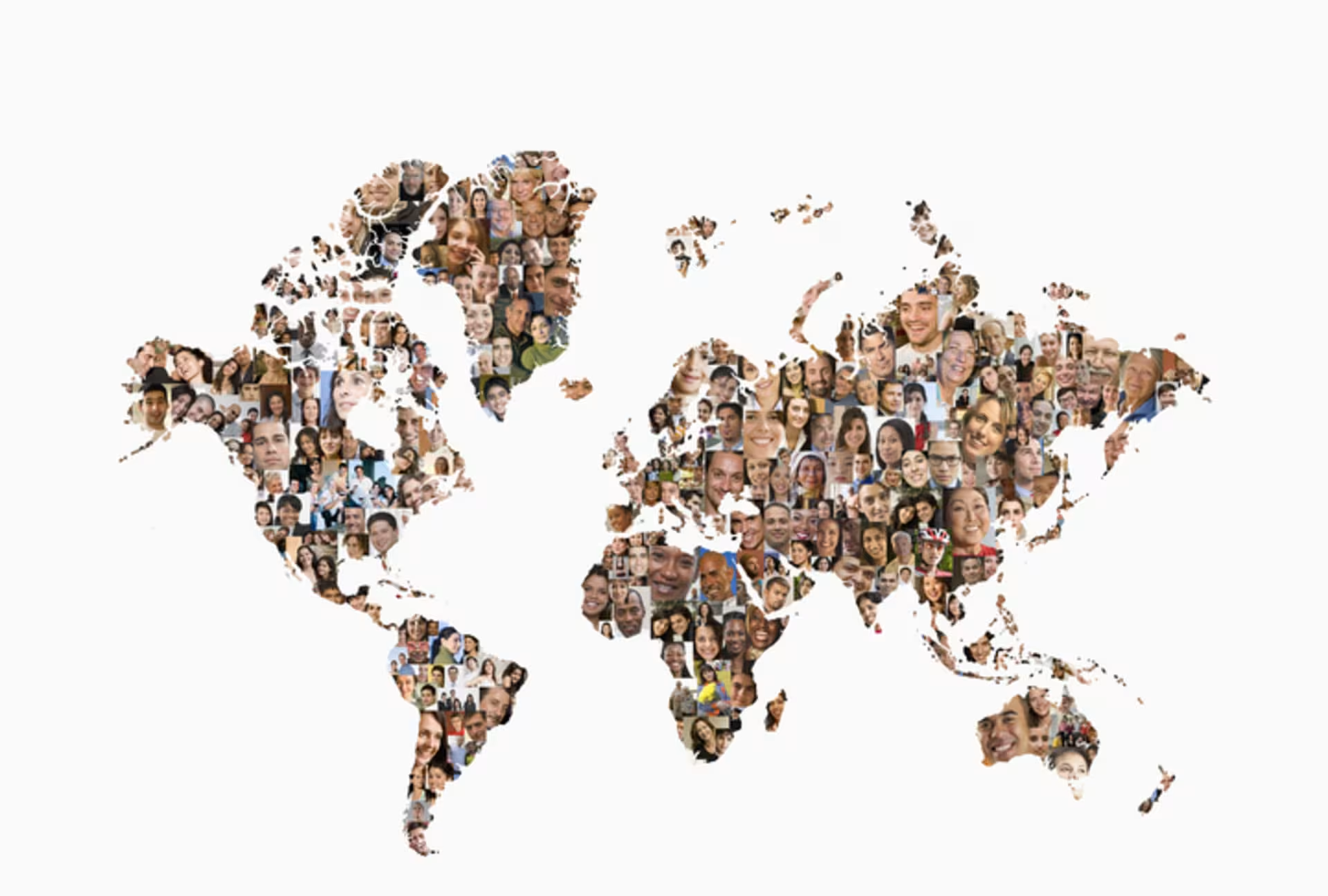There is no denying that the world has turned upside down with the deadly Coronavirus (COVID-19) spreading faster than society, governments, and healthcare systems can react. But what about the private sector in the midst of it all? This is happening at a time when some were already questioning capitalism and its worth as an economic system to serve our communities and nation. Governmental leaders are currently working to mitigate the danger to society, but it cannot rest all on them. Private businesses are the nimble and creative ones with the potential to provide solutions. Is free market capitalism the system that can turn things around?
Technically capitalism is not a ‘system’ but more of an ideal, a principle of human cooperation allowing society to exchange goods/services in a fair process beneficial to all.(See disclaimer 1) As explained below, that ideal is needed now more than ever before to slow the effects of this global pandemic.
Conscious Approach to Capitalism
Capitalism is not so much an engineered system with sequenced steps but more of a concept of social interaction requiring trust, respect, and a higher purpose integrating all stakeholders. The free markets ebb and flow as demands, resources, and logistics evolve and react to the marketplace and world events. The credo of Conscious Capitalism does not outline a prescribed, mechanized system, but rather principles centered on humanity.(See disclaimer 2)
The Conscious Capitalism effort is centered on elevating humanity. As the Coronavirus continues to spread, the private sector, led by conscious businesses, is intervening. In the midst of this global crisis, businesses are stepping up, leaders from international corporations to small local businesses, are transforming their companies to produce goods/services needed to support society. Innovative businesses are pivoting production lines to healthcare items and cleaning supplies.(See disclaimer 3) New Balance (running shoes) just announced they will transform their efforts to produce hospital facial masks.(See disclaimer 4) Distilleries around the country are turning their high-proof raw alcohol into hand sanitizer, an item that has become both high demand and in short supply during the fight against the coronavirus.(See disclaimer 5)
Stephen Denny wrote “Shareholder Capitalism isn’t dead, it just changed its name to Stakeholder Capitalism.”(See disclaimer 6) He mentioned that as long as brands stay close to their core mission regarding social causes, they increase brand strength and loyalty. A large consumer base of millennials want to work for and align with brands that share their values and that make them feel like an authentic stakeholder of that company founded on purpose. How a business responds to COVID-19 will go a long way in determining its future, from a purpose perspective and taking care of stakeholders.
Larry Fink, Founder, Chairman, and CEO of Blackrock, made a clear case for purpose with this defining statement in January 2018:
Without a sense of purpose, no company, either public or private, can achieve its full potential. It will ultimately lose the license to operate from key stakeholders.(See disclaimer 7)
Then in January 2019, Fink highlighted the role of business and social impact, as well as the strength of millennials.
This dynamic is becoming increasingly apparent as the public holds companies to more exacting standards…And it will continue to accelerate as millennials – who today represent 35 percent of the workforce – express new expectations of the companies they work for, buy from, and invest in. Attracting and retaining the best talent increasingly requires a clear expression of purpose.(See disclaimer 8)
Just recently in January 2020, Fink referred to his approach as Accountable and Transparent Capitalism with the bolded statement:
Ultimately, purpose is the engine of long-term profitability.(See disclaimer 9)
Fink’s statements describe how conscious businesses aim to serve stakeholders with their higher purpose, such as employees, vendors, contractors, and customers, as well as the community, neighborhood, and environment.
Marc Benioff, CEO of Salesforce, in an interview with the NY Times, reflected on his company’s role in society and then asked two powerful questions.(See disclaimer 10)
A company like ours can’t be successful in an unsuccessful economy or in an unsuccessful environment or where the school system doesn’t work. We have to take responsibility for all of those things… We need to have a more enlightened view about the role of companies. This company is not somehow separate from everything else. Are we not all connected? Are we not all one?
Servant Leadership
To take a company to this Capitalism 2.0 stage or even on the journey toward Conscious Capitalism, or Accountable Capitalism leadership is essential. Servant Leadership is an approach to leading through compassion and respect, while still maintaining accountability and generating revenue. They serve others before self and are humble stewards of their organization. This is all extremely difficult and requires a clear expression of purpose. Leadership of a company involves respecting a company’s position in a community. Purpose-minded leaders with integrity and stakeholder orientation will lead business to benefit both the economy and community. The well-publicized August 2019 Business Roundtable announcement shared this thinking, when JP Morgan’s CEO, Jamie Dimon expressed.(See disclaimer 11)
In the past, boards and advisers to boards advised company CEOs to keep their head down and stay out of the line of fire. Now the opposite may be true. If companies and CEOs do not get involved in public-policy issues, making progress on all these problems may be more difficult.
A recent ‘trust’ survey found that 56% of people believe that capitalism as it exists today does more harm than good in the world.(See disclaimer 12) It is clearly time for a better articulated and executed form of business to arise. Conscious or Stakeholder or 2.0 Capitalism, regardless of the name, is here to serve society, solve problems, and create/capture value. In the year 2020 businesses are stepping into the line of fire.
Leadership Right Now
It all starts at the top. Capitalism’s ideals have never left our society. Free market capitalism has been here all along waiting to bring out our best. Given world events, servant leaders are coming forward to help. Forbes has posted a list of 120+ companies that have shifted their production to support COVID-19 efforts via testing, treatment, medical protection, beds, and/or ventilators.(See disclaimer 13)
Bob Chapman, CEO of Barry-Wehmiller, has modeled servant leadership for decades. He measures success in how his company can touch peoples’ lives. His book, Everybody Matters, is a phenomenal read that shares how Bob led a company to success by treating everyone as the precious individual that they are. His company’s higher purpose is clear and he shared his approach to leadership during the current COVID-19 crisis in late March 2020.(See disclaimer 14)
These times are uncertain. Leadership is needed now more than ever. Free market capitalism can help our world solve the many problems we all are facing. Governments cannot do it alone. Businesses with a higher purpose and a stakeholder orientation have never been more needed by society in the way they are now to help flatten the pandemic curve. Companies must step into areas they have historically avoided, and they are. We are all connected, we are all one.
To learn more about how Grand Canyon University’s Colangelo College of Business provides great businesses students with the tools to become future thought leaders, visit our website or click the Request More Information Button on this page. To view our business degrees, visit our Business and Management page.
Retrieved from:
(See disclaimer 1) https://www.wsj.com/articles/capitalism-isnt-a-system-11577299125
(See disclaimer 2) https://ccarizona.org/about/
(See disclaimer 3) https://techcrunch.com/2020/03/26/private-tech-companies-mobilize-to-address-shortages-for-medical-supplies-masks-and-sanitizer/
(See disclaimer 4) https://www.runnersworld.com/uk/news/a31974384/new-balance-medical-masks/
(See disclaimer 5 ) https://www.distilledspirits.org/distillers-responding-to-covid-19/distilleries-making-hand- sanitizer/
(See disclaimer 6 ) https://www.inc.com/stephen-denny/shareholder-capitalism-isnt-dead-it-just-changed-its-name-to-stakeholder-capitalism.html
(See disclaimer 7) https://www.blackrock.com/corporate/investor-relations/2018-larry-fink-ceo-letter
(See disclaimer 8) https://www.blackrock.com/corporate/investor-relations/2019-larry-fink-ceo-letter
(See disclaimer 9) https://www.blackrock.com/corporate/investor-relations/larry-fink-ceo-letter
(See disclaimer 10) https://mobile.nytimes.com/2018/06/15/business/marc-benioff-salesforce-corner-office.html and https://www.nytimes.com/2019/10/14/opinion/benioff-salesforce-capitalism.html
(See disclaimer 11 ) https://www.bloomberg.com/news/articles/2019-08-19/jpmorgan-s-dimon-among-ceos-rejecting-shareholder-centric-model
(See disclaimer 12) https://www.edelman.com/trustbarometer
(See disclaimer 13) https://www.forbes.com/sites/giacomotognini/2020/04/01/coronavirus- business-tracker-how-the-private-sector-is-fighting-the-covid-19-pandemic/#37fe0c895899
(See disclaimer 14) https://www.trulyhumanleadership.com/?p=4669






